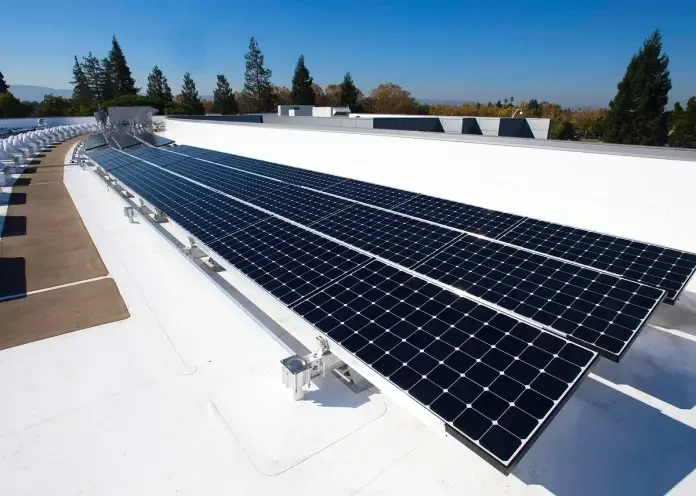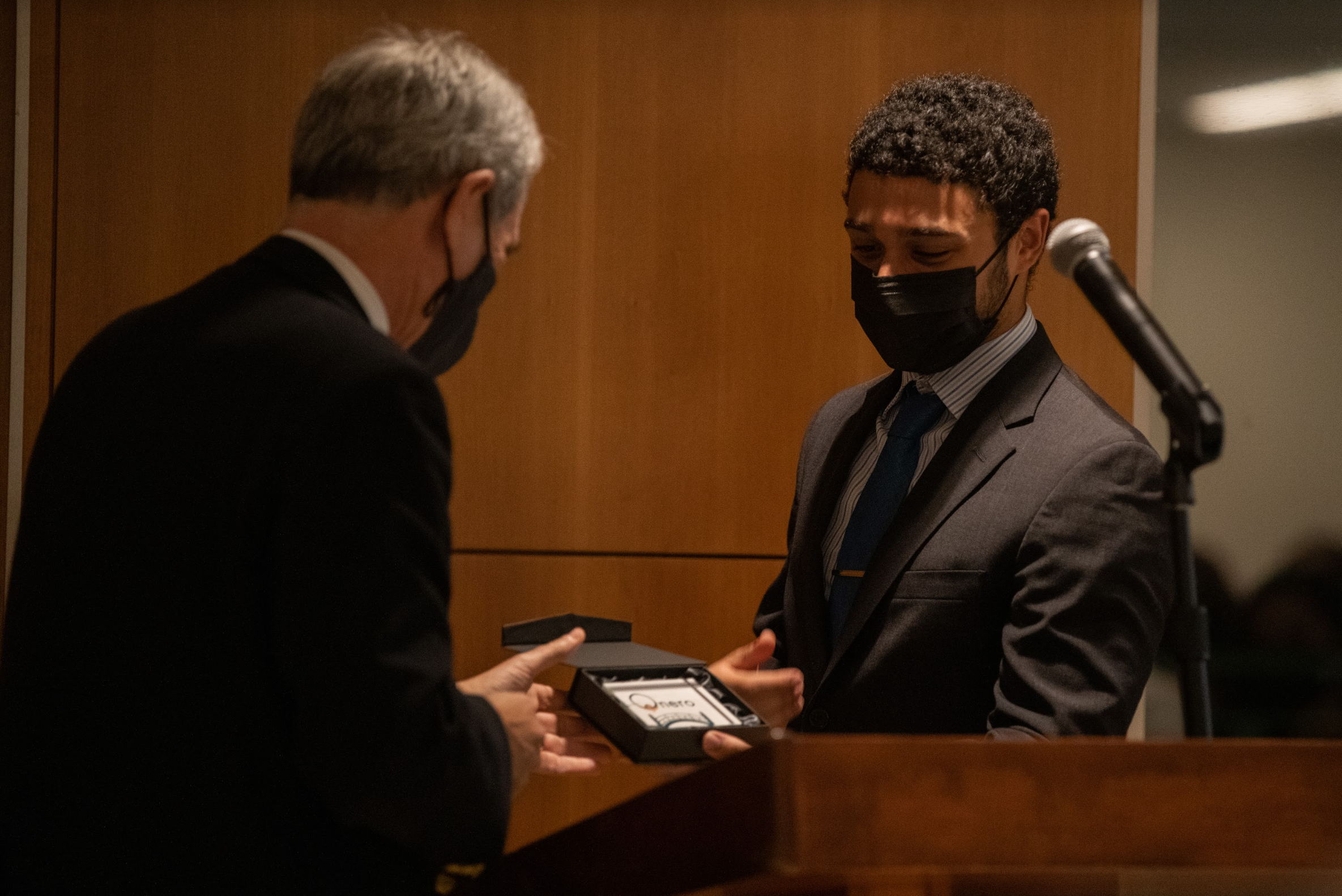Onero Research
Date Published
- January 2026
- December 2025
- November 2025
- August 2025
- July 2025
- June 2025
- May 2025
- April 2025
- March 2025
- February 2025
- January 2025
- December 2024
- November 2024
- October 2024
- September 2024
- August 2024
- July 2024
- June 2024
- March 2024
- February 2024
- October 2023
- March 2023
- February 2023
- January 2023
- November 2022
- October 2022
- January 2022
- November 2021
- October 2021
- August 2021
- July 2021
- March 2021
- September 2020
- August 2020
- July 2020
- February 2020
Missile Warfare and Air Defense in the Ukraine Conflict: Evaluating Long-Range Systems and Ukraine's Defenses Against Russian Threats
The Russo-Ukrainian war has been marked by mutual short-range missile and drone attacks, but Ukraine has struggled to gain a significant advantage in aerial warfare. In November of 2024, former President Biden approved the discretionary use of long-range missiles by Ukraine in the ongoing war against Russia. Since then, how have long-range missiles altered the nature of the war?
Hungary’s Pride Ban: Domestic Concerns and International Intervention
In March 2025, the Hungarian Parliament, led by the illiberal populist Fidesz party, passed by a large majority a bill banning LGBTQ+ assembly, including Pride parades.Though this legislation is not particularly surprising given Prime Minister Viktor Orban’s track record of targeting the LGBTQ+ communityand other minorities, it furthers an alarming agenda and poses significant domestic and international concern.
An Examination of the Growing Rivalry Between France and Türkiye
In May 2025, during the European Political Community summit in Tirana, Albania, a video of Turkish President Reçep Tayyip Erdoğan grabbing the French President's finger and refusing to shake his hand went viral on social media. This clash was not the first time such an incident between the two leaders occurred. In 2020, Erdoğan said that Macron needed mental treatment over an argument when the French president defended the country’s policy of laïcité after a teacher got beheaded. The personal tension between Macron and Erdoğan illustrates the growing geopolitical rivalry between Ankara and Paris.
The Iran-Iraq War and the Securitization of Iran’s Energy Sector
This paper argues that the Iran-Iraq War was essential to the securitization of Iran’s energy sector by transforming it from a standard political issue into a matter of national survival. The paper will first examine how Iran enabled the Islamic Revolutionary Guard Corps (IRGC) to consolidate control of the country’s energy industry as a means of safeguarding it from external pressure, followed by an investigation into how the regime created a secret “shadow fleet” network to facilitate illicit oil exports, which Iran began to perceive as a crucial tool for its survival. Finally, the paper will explore how Iran has employed a range of unconventional tactics to defend its critical energy infrastructure from external attack, thereby cementing Tehran’s energy sector as a top priority for the regime.
The Forgotten Entrepreneurs: How Africa’s Subsistence Farmers Can Feed the World and Save the Planet
Many of Africa’s most vulnerable entrepreneurs are subsistence farmers, stuck in a vicious cycle of poverty without the resources to increase their land’s productivity or their family’s income, tilling the land not for profit, but for survival. This cycle of low productivity and poverty not only limits economic opportunity, but also harms the environment. Traditional farming methods contribute to soil degradation, carbon emissions, and deforestation. However, with access to improved tools, financial support, and sustainable practices, these farmers could become central players in a regenerative agricultural movement that increases food security and combats climate change.
Bodily Autonomy in Crisis: The Sterilization of Dalit Women in India
Dalit, translating to “oppressed,” refers to the people formerly known as “untouchables.” Dalit women are marginalized in Indian society due to their unique experience with the intersection of caste-based discrimination, gender oppression, and state-sanctioned policies. They are routinely denied access to education, healthcare, and basic rights. This exclusion and marginalization make them prime targets for forced sterilization, which is viewed by some as a way to control the reproductive capacity of marginalized communities.
Turkey’s Identity Crisis: The Cyclical Struggle Shaping Its Domestic Instability
For much of the 20th century, Turkey was defined by a precarious duality—straddling Europe and Asia, secularism and Islam, democracy and authoritarianism. Today, however, Turkey is no longer just a bridge between worlds; it is an assertive regional power reshaping the geopolitical landscape. However, beneath this ascent lies a deeper struggle—one not just about power, but identity. As Turkey expands its influence abroad, it remains divided at home, caught between competing visions of its future. Understanding this internal conflict is key to making sense of the forces shaping Turkey today.
What to Make of The European Union’s Outreach to the Indo Pacific
Washington’s increasing attacks on the transatlantic alliance have led to the Europeans to seek partners elsewhere, especially in the Indo-Pacific. These outreach efforts by the EU illustrate its desire to look for alternative partners beyond Beijing, Moscow, and Washington. However, to deepen cooperation, the EU should put more emphasis on its commitment to multilateralism, rather than hyper-focusing on human rights.
The Pacific Crucible
As global instability distracts American attention across Europe and the Middle East, a strategic reckoning is long overdue. Washington must recognize the urgency that it faces in the Indo-Pacific. The rise of China as a peer competitor presents not only an economic challenge but a military one. The ideological dogma of the Chinese Communist Party makes reunification with Taiwan a necessity. If the United States is not careful, they may well be walking into a military confrontation that they are wildly unprepared for.
Contextualizing the Modern Captagon Trade
This is the first in a multi-part series exploring Captagon and the future of the amphetamine trade inside the Middle East. In this article, we contextualize the importance of Captagon and explore its associated trade to both the former Assad regime and various non-state actors within the Middle East.
Hydrogen’s Role in Economic Diversification and Market Growth in the Gulf
For decades, the economic prosperity of the Gulf states has been inextricably linked to oil and gas exports. These resources have fueled rapid development, infrastructure expansion, and geopolitical influence. However, as global demand for fossil fuels slows in response to climate change initiatives, net-zero commitments, and carbon pricing mechanisms, the Gulf states must adapt or risk economic stagnation.
Rethinking China’s Data Center Strategy for AI dominance: Cooling Methods, Energy Efficiency, and Heat Recycling
With the proliferation of communication and network technology, data centers have become increasingly more important to maintain low latency and increase the pace of online services. This growth is driven by expanding needs for data processing, storage, and digital communication, which will naturally lead to higher energy consumption. Without sufficient investment in data centers and promotion of efficient energy use, generative AI is unlikely to realize its full potential. It is estimated that AI could unlock between 2.6 and 4.4 trillion dollars throughout the global economy if data center electricity demand is met. As a result, energy efficiency has become the primary concern for operators, surpassing even security.
African Youths and Anti-Corruption Movements: Transforming Politics and Business for a Transparent Future
African Youth, particularly Nigerians, are beginning to showcase a clear pattern of leading an Africa-wide revolutionary anti-corruption movement with the ultimate objective of giving the political and economic face of the continent a new look. Unlike the passive positions they occupied in the past, African youths are now taking charge as active change agents in anti-corruption movements by engaging the mechanism of technology innovation, expanded educational options, and greater political consciousness.
It’s High Time for Bhutan and the U.S to Establish Diplomatic Relations
Bhutan, situated between India and China, is nicknamed the “Hidden Kingdom,” given the lack of attention it receives from the media and policymakers abroad. However, a few weeks ago, Bhutan appeared in the news cycle for an odd reason: the American travel ban. This incident highlights the need for Bhutan to consider establishing formal diplomatic relations with the U.S. Having an embassy in Washington D.C will make it easier to handle these types of issues going forward.
The Rise of the Gulf’s Hydrogen Economy: Oman, Saudi Arabia, and the UAE’s Path to Global Leadership
The global energy landscape is undergoing a seismic shift as countries seek cleaner, more sustainable alternatives to fossil fuels. Hydrogen has emerged as one of the most promising solutions, capable of decarbonizing industries, replacing natural gas, and powering the world’s future energy networks. As the global race for hydrogen leadership accelerates, the Gulf states—Oman, Saudi Arabia, and the UAE—are stepping up as major players in this emerging economy.
The Impact of a Second Trump Term on US-India Relations
On November 5, 2024, Donald Trump was reelected the next president of the United States. Indian Prime Minister Narendra Modi congratulated “his friend” for winning reelection on X (Formerly Twitter). However, regardless of the cordial personal rapport between the two leaders, a Trump presidency has the potential to create issues for India, including human rights, China, Russia, and Iran, many of which stem from Trump’s erratic personality.
The Future of Lebanon: Can New Leadership Overcome the Past?
Lebanon’s new leadership under President Joseph Aoun and Prime Minister Nawaf Salam signals a potential shift from years of political deadlock and economic collapse. As they take office, they must confront deep-seated corruption, rebuild state institutions, and manage regional instability, all while balancing sectarian divisions and international expectations.
Imperial Legacies and Modern Exceptionalism: Diverging Paths of National Identity in Turkey and Iran
The imperial histories of Iran and Turkey have left an enduring imprint on their modern political identities, ideologies, and the public preferences of their citizens. Their similarities and distinctions present a unique case study of how historical grandeur informs modern governance.
One Signature: How Ghana's Anti-LGBT Bill Balances Domestic Politics and International Pressure
On February 28th, 2024, the Ghanaian parliament passed the Human Sexual Rights and Family Act, a bill intended to criminalize a wide array of LGBT activities. Even for a country with a poor record on LGBT rights, the bill is repressive: same-sex relations, heretofore vaguely defined as “unnatural carnal knowledge” by the law, are explicitly criminalized. Nevertheless, the bill is not yet law. While it has passed parliament, it does not go into effect until signed by the president of Ghana, which President Nana Akufo-Addo has not done. Why not?





















